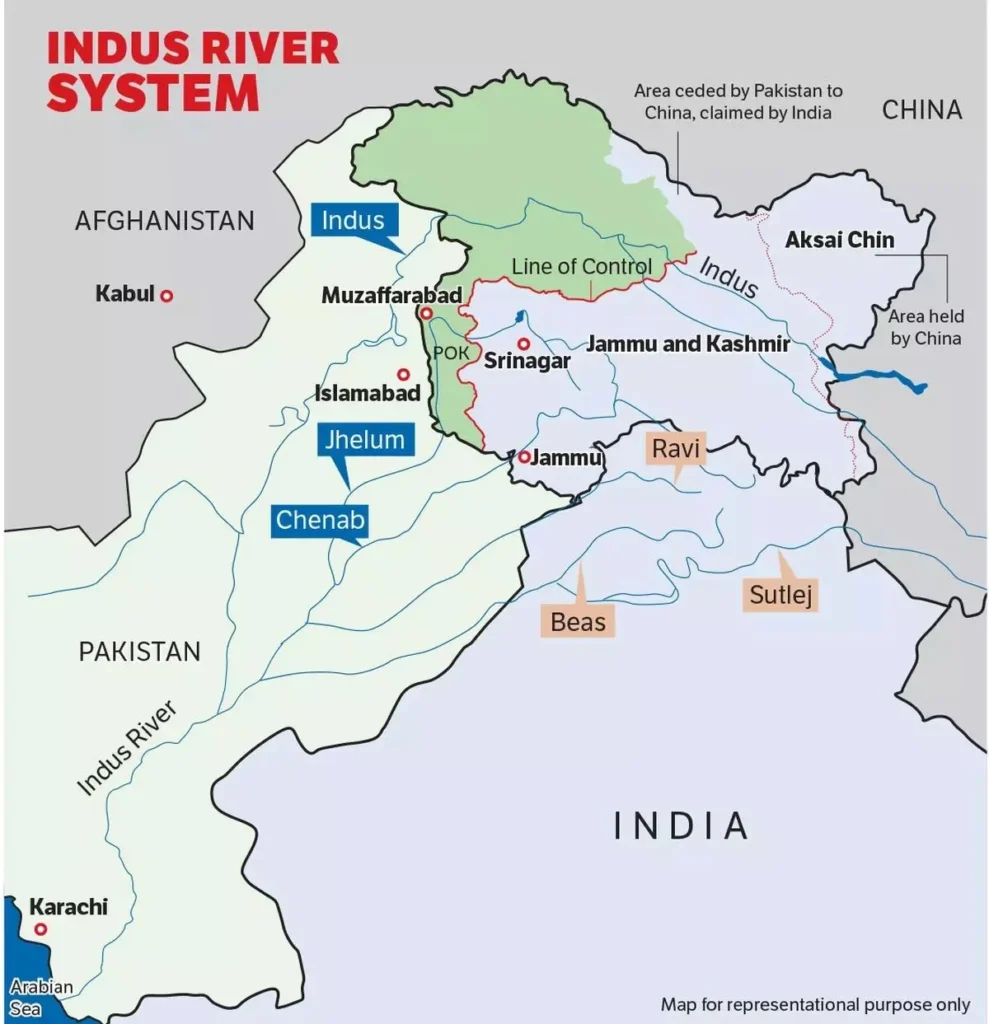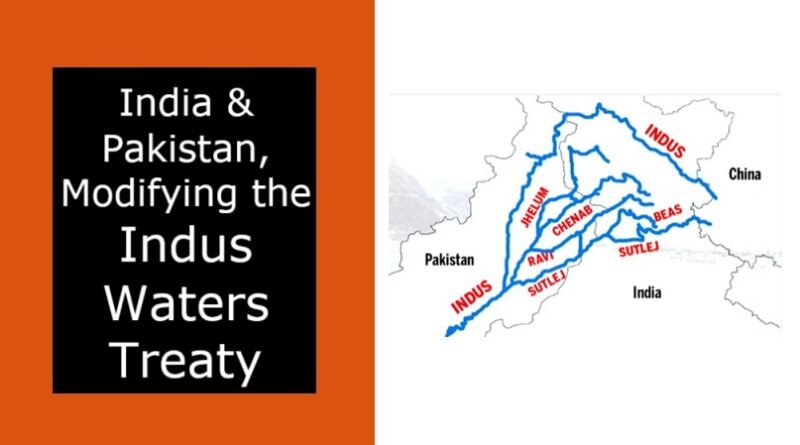India, Pakistan, & Modifying the Indus Waters Treaty
Recent geopolitical shifts and environmental challenges have reignited discussions on revisiting the Indus Waters Treaty (IWT). Addressing the complexities of renegotiating this agreement requires balancing the interests and concerns of both India and Pakistan.
What is Indus Waters Treaty (IWT)?
Signed in 1960 with World Bank mediation, the IWT is a landmark agreement that governs the use of the Indus River system’s waters between India and Pakistan. It has stood as a rare example of cooperation in an otherwise strained relationship, offering a framework for water-sharing and dispute resolution.
Historical Background
The partition of British India in 1947 divided not only land but also the Indus River system. An initial agreement, the Inter-Dominion Accord of 1948, proved insufficient, leading to escalating disputes. In 1951, the World Bank stepped in, and nearly a decade later, Indian Prime Minister Jawaharlal Nehru and Pakistani President Ayub Khan signed the IWT, providing a structured approach to water sharing.
Key Provisions of the Treaty
The IWT allocates the six rivers of the Indus basin:
- Eastern Rivers (Ravi, Beas, Sutlej): Allocated for India’s unrestricted use.
- Western Rivers (Indus, Jhelum, Chenab): Reserved primarily for Pakistan, with India permitted limited use for agriculture, domestic needs, and hydropower, provided it does not disrupt flows.

Mechanisms for Cooperation
The treaty established the Permanent Indus Commission (PIC), comprising representatives from both countries to oversee implementation, monitor compliance, and resolve disputes through dialogue. Regular meetings have helped maintain this collaborative mechanism, even during periods of heightened tension.
India’s Perspective
India argues that the treaty needs modernization to reflect contemporary realities, including:
- Demographic Pressures: Rapid population growth and increased agricultural demands necessitate greater water access.
- Hydropower Development: India seeks to expedite hydropower projects on the western rivers, which fall within its rights under the treaty but have faced Pakistani opposition.
India also cites challenges such as Pakistan’s alleged support for cross-border terrorism as a factor influencing its approach to the IWT.
Pakistan’s Concerns
As a lower riparian state, Pakistan’s economy and food security heavily depend on the uninterrupted flow of the Indus River system. Key concerns include:
- Water Flow Disruptions: Pakistan fears that India’s projects on the western rivers could reduce its water availability, threatening agriculture and drinking water supplies.
- Trust Deficit: The lack of transparency in project execution raises doubts about India’s adherence to treaty provisions.
Pakistan views any modification to the treaty as a potential threat to its water security, amplifying its already precarious economic and environmental challenges.
Current Challenges
- Hydropower Projects: India’s construction of dams and other hydropower infrastructure on western rivers has been a consistent source of friction.
- Technical Disputes: Differences in interpreting treaty clauses, especially regarding India’s projects, have led to frequent disagreements.
- Political Tensions: Minimal bilateral engagement and deteriorating diplomatic ties have made dispute resolution increasingly difficult.
- Climate Change Impacts: Glacial melt, erratic precipitation patterns, and reduced water availability due to climate change further complicate the treaty’s implementation.
Revisiting the Treaty: Pros and Cons
Arguments for Modification
- Modern Challenges: The IWT does not account for climate change, technological advancements, or increased water demand, making it less effective in the current context.
- Securing India’s Interests: Updating the treaty could enhance India’s ability to address its growing needs while setting clearer hydropower guidelines.
Risks of Modification
- Escalating Tensions: Pakistan may perceive treaty modifications as unilateral moves, worsening already strained relations.
- Political Volatility: Domestic resistance in both countries could stall renegotiations, making a mutually acceptable solution elusive.
A Path Forward
To ensure a sustainable and cooperative resolution, both nations must prioritize dialogue over discord:
- Engaging Third Parties: Neutral mediators, such as the World Bank, could help facilitate negotiations, ensuring transparency and trust.
- Climate Resilience: Joint efforts to address climate change’s impact on water resources could foster long-term cooperation.
- Strengthening the PIC: Enhancing the capabilities of the Permanent Indus Commission can enable quicker resolution of disputes and better treaty enforcement.
Ultimately, renegotiating the IWT offers an opportunity to address modern challenges while fostering collaboration. However, both sides must approach this process with caution, a spirit of compromise, and recognition of the mutual benefits of cooperation in managing shared water resources.

